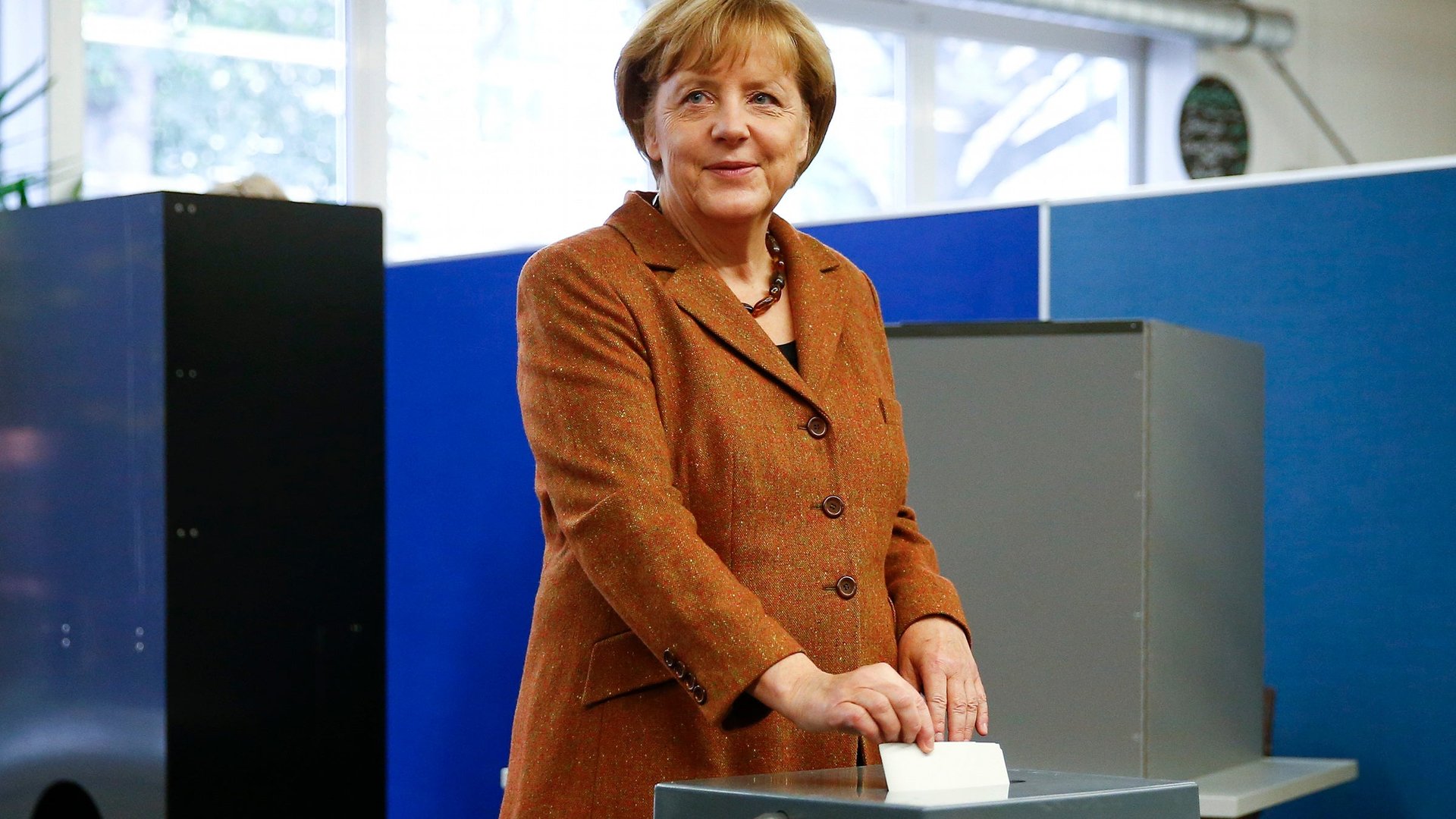Merkel set to surpass Thatcher as Europe’s longest-serving female leader
There was little doubt that Angela Merkel would win a third term as German chancellor in today’s federal election. Indeed, early exit polls suggest that Merkel’s party (the Christian Democratic Union, or CDU) won the biggest share of votes, at around 42%. This is well above the 26% apparently gained by her closest rivals, the left-leaning Social Democratic Party (SPD) led by Peer Steinbrück.


You can read an update with the results here.
There was little doubt that Angela Merkel would win a third term as German chancellor in today’s federal election. Indeed, early exit polls suggest that Merkel’s party (the Christian Democratic Union, or CDU) won the biggest share of votes, at around 42%. This is well above the 26% apparently gained by her closest rivals, the left-leaning Social Democratic Party (SPD) led by Peer Steinbrück.
Although the CDU’s results are almost ten percentage points better than their share of the vote in 2009, Merkel’s freedom to govern may rely on joining forces with smaller parties to form a majority in parliament, according to projections released around the end of polling. Her current coalition partner, the Free Democratic Party, is polling at just under 5%, according to polls. This is crucial, because electoral rules require a party to win at least 5% of the vote to gain representation in parliament. It appears, then, that there are not enough votes to return the current coalition to government. A “grand coalition” with the SPD seems likely, according to the results thus far.
Merkel’s personal position, however, is stronger than ever; today’s result essentially ensures her status as chancellor, whatever the make-up of the next government. She is one of the few leaders in the euro zone to gain popularity as a result of the region’s economic turmoil. Voters elsewhere in the euro zone have turfed out their pre-crisis governments at the first opportunity, but Merkel’s steady approach to steering Europe’s largest economy through the turbulence has served her well. The politician known as “mutti” (mommy) on the campaign trail is now poised to become Europe’s longest-serving female head of government, surpassing Margaret Thatcher’s 11 years as British prime minister.
To follow the results as they come in throughout the day—a final result is expected by midnight German time (11pm London, 6pm New York)—a few key resources include the official election site, live broadcast of Deutsche Welle, streaming updates from Der Spiegel and the #btw13 hashtag on Twitter.